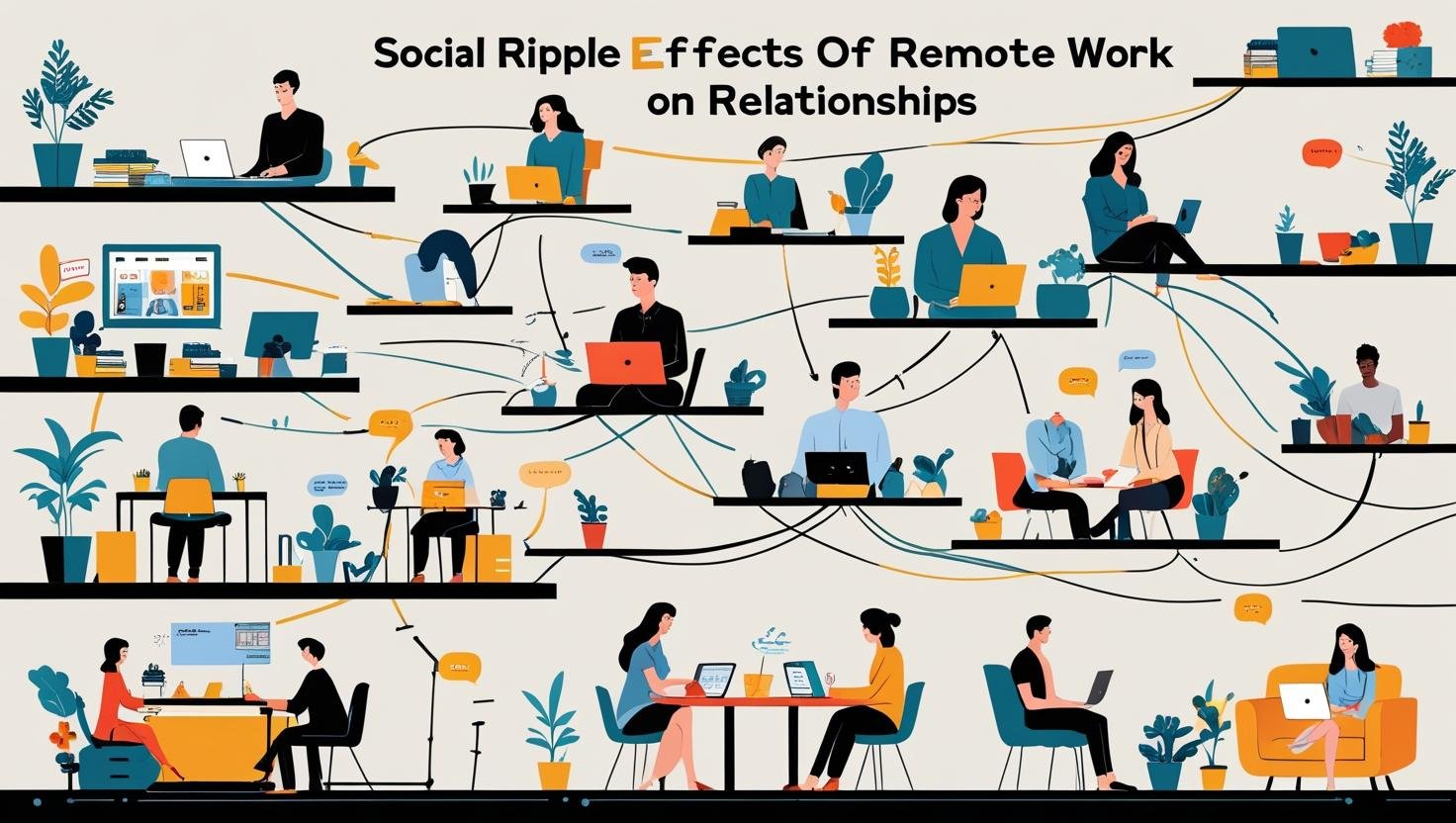The Real Life of Remote Workers: What It’s Really Like to Work from Anywhere

Many people imagine remote jobs as a dream, waking up late, drinking coffee in pajamas, and sending emails from a beach. While this freedom is real, the full picture is more complex. There are real challenges that affect how we live, work, and feel about ourselves.
In this article, we’ll look deeper into what it’s like to live and work remotely. We’ll talk about time zone issues, feeling lonely, traveling while working, and using the right tools. Whether you’re looking for writing remote jobs, testing a work-from-home alternative, or exploring AI tools for remote workers, this article will help you understand the real ups and downs of remote life.
1. The Hidden Challenges of Remote Work: What Nobody Prepares You For
A. The Illusion of Flexibility and the "Always On" Trap
People often say remote work gives you better work-life balance. But in reality, it can blur the lines between work and home. Without set office hours or a commute, many people end up working too much, replying to emails late at night or during family time. It’s easy to feel like you have to be available all the time, which can lead to burnout.
Some workers try a work-from-home alternative, like using co-working spaces or working part-time from an office, to help create clear boundaries between work and personal life.
B. Time Zone Warfare: The Silent Struggle of Global Teams
Working with people in different parts of the world can be exciting, but it’s also very tiring. You might have early morning meetings or late-night calls just to keep up with the team. Over time, this can mess up your sleep and make it hard to spend time with family and friends.
These time zone challenges are very common in remote jobs, especially when working with teams or clients across the world.
C. The Psychological Toll of Prolonged Solitude
Humans are social by nature. When you work alone all day, it can affect your mental health. There’s no chatting with coworkers, no shared lunch breaks, just you and your screen. Some people start feeling lonely or lose focus easily.
This is something many writers or creatives face. People in writing remote jobs often enjoy quiet time, but too much isolation can still be hard. That’s why many remote workers visit cafés or shared workspaces just to be around others.
D. The Fragile Dependence on Technology
In a regular office, if your internet goes down or your computer stops working, IT helps you fix it. But when you work remotely, it’s all on you. A poor Wi-Fi connection or a broken laptop can mean missing deadlines or losing work.
That’s why many people now use AI tools for remote workers. These tools help with things like organizing tasks, replying to emails, writing documents, and even fixing grammar, saving time and lowering stress.
2. The Unexpected Perks: Freedom, Flexibility, and the Joy of Missing Out

A. The Liberation of Asynchronous Productivity
Remote work lets you build your day around your natural rhythm. If you work better in the early morning or late at night, you can plan your schedule your way. You’re not stuck in a 9-to-5 routine. Many people find they get more done in less time.
This is one of the biggest benefits of remote jobs, you control your time and can be more productive without the distractions of a typical office.
B. The Quiet Revolution of Domestic Freedom
At home, you don’t need to wear formal clothes or eat lunch at your desk. You can cook fresh food, listen to music, stretch when you want, or even work barefoot. These small freedoms add up and can change how you feel during the day.
This is what many love about the remote lifestyle, it gives you freedom in small ways that make a big difference over time.
C. The Rise of the "Workation" and the New Geography of Work
Remote work has made it possible to travel while working, also known as a “workation.” Some people work from places like Bali, Lisbon, or the mountains, mixing work with adventure. It sounds fun, but it also means finding reliable internet, planning around time zones, and staying focused.
3. The Social Ripple Effects: How Remote Work Changes Relationships

A. The "Do You Even Work?" Phenomenon
Even though remote work is becoming more popular, not everyone understands it. Friends or family may ask, “When will you get a real job?” or expect you to help with things just because you’re home. This can make remote workers feel like their job isn’t taken seriously.
People in writing remote jobs face this often, especially because their work is quiet, solo, and behind a screen. It’s important to set boundaries and explain your work clearly to others.
B. The New Rules of Digital Socialization
When you don’t see coworkers every day, it’s harder to build relationships. Remote workers have to make extra effort to stay connected, through video calls, group chats, or online communities. You have to be intentional about socializing, both for work and friendship.
4. The Future of Remote Work: Where Do We Go From Here?
Remote work is changing fast. Hybrid roles, digital nomad visas, and even virtual reality meetings are becoming more common. The big challenge is keeping the freedom of remote work while solving problems like loneliness, stress, and poor work-life balance.
More people are also turning to AI tools for remote workers to help manage tasks, stay organized, and improve communication. These tools are becoming an important part of staying productive and balanced in the remote world.
Conclusion: Remote Work as a Mirror
Remote work shows us who we really are. It reveals our habits, our focus, and our values. For some, it brings more peace and flexibility. For others, it brings challenges like distraction or loneliness. It’s not better or worse than office work, it’s just different.
To succeed, you need to be honest with yourself, build good habits, and create structure. If done right, remote work can offer a lifestyle full of freedom, purpose, and balance, but it takes effort and awareness to make it work long-term.
